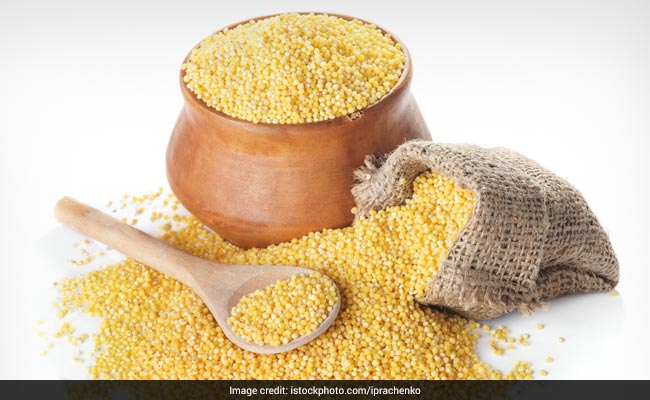

- Home/
- Diabetes: Can A Plant Based Diet Help Control Blood Sugar Levels? Nutritionist Shares The Pros And Cons Of This Diet
Diabetes: Can A Plant Based Diet Help Control Blood Sugar Levels? Nutritionist Shares The Pros And Cons Of This Diet

Highlights
- Diabetes require healthy management of blood sugar levels
- Exercise and diet play an important role in controlling blood sugars
- Plant based diet may help manage diabetes effectively
Diabetes is a progressive condition and chronic condition which requires constant management of blood sugar levels. If diagnosed early, the progression can be slowed considerably with therapeutic diet and physical activity. But if left uncontrolled, the blood sugar levels may start affecting different organs of the body. It is advised that diabetics should keep a constant check on the blood sugar levels and follow all necessary precautions to avoid major fluctuations.
Physical activity helps in controlling progression of the condition. But what is not clear is the ideal dietary pattern to be followed. There is a lot of uncertainty in nutrition claims, what was true yesterday may have some other aspects to reconsider with emerging research studies. One such research is about how effective is a plant-based diet in managing diabetes. In this article, Mrs. Sweedal Trinidade who is a nutritionist and senior dietetics officer at P.D. Hinduja National Hospital explains in detail the pros and cons of a plant-based diet and its effect on diabetes.
Diabetes: Is plant-based diet helpful in controlling blood sugars?
A plant-based diet focuses more on eating legumes, whole grains, vegetables, fruits, nuts, and seeds with little or no animal products.
The pros of plant based diet:
1) No additives: Plant-based diets are minimally or not processed. So, no additives may contribute to insulin resistance.
2) Fibre: Plant-based diets are rich in cellulose and hemicellulose. Both are majorly responsible for maintaining glycemic index of the meals and improving postprandial blood sugar levels.
3) Probiotics: More commonly known as food for gut-friendly bacteria. They are the type of fibre, found in fruits, vegetables and legumes are fermented by intestinal bacteria to produce short-chain fatty acids, which also improve sugar metabolism by increasing insulin sensitivity.
4) Antioxidant-rich: Plant-based diets are usually rich in various antioxidants like-
a) Polyphenols that inhibit glucose absorption and stimulate insulin secretion
b) Magnesium promotes insulin sensitivity thereby improving sugar metabolism
Also read: Diabetes Diet: Know How Many Almonds You Should Eat To Lower Blood Sugar Levels
Also read: Diabetes: Exercise Tips To Manage Blood Sugar Levels; Benefits Of Exercising For Diabetics
The cons of plant based diet:
Now the question is why India is known as diabetes capital when the diet followed is predominantly vegetarian? This makes it important to highlight the downside of plant-based diet:
In case you decide to rely completely on plant-based diet a lot of thought has to go in planning and balancing the diet or else you will land up in the following:
1) Plant-based diets are loaded with carbs usually: This may affect blood sugars.
2) Less of complex carbohydrates and more of simple sugars: This will greatly impact the glycemic load of meals and ultimately the blood sugar levels.
3) Proteins deficiency: If the diet is not planned properly you may miss out on essential amino acids and also land up consuming protein-deficient diet. Hence having foods in right combination can compensate for this. Example right combination of cereals and pulses might help.

Many following plant based diet suffer from protein deficiency
Photo Credit: iStock
4) Vitamins and minerals: Calcium and iron, no doubt many vegetables are rich in minerals like iron and calcium but due to presence of phytates, oxalates and fiber the bioavailability is low.
5) Vitamin B12: Plant diets are deficient in vitamin B12. Hence it is important to include foods fortified in Vitamin B12.
Also read: 5 Nuts And Seeds Loaded With Omega-3 Fatty Acids You Must Add To Your Plant-Based Diet
It is very important to analyse the pros and cons before adopting any diet. Finally, striking the right balance and ensuring no nutritional deficiencies can not only promote good health but also optimal glycemic control!
(Mrs. Sweedal Trinidade, Senior Dietetics Officer, Dietary Services, P.D. Hinduja National Hospital and MRC, Mumbai)
Disclaimer: This content including advice provides generic information only. It is in no way a substitute for qualified medical opinion. Always consult a specialist or your own doctor for more information. NDTV does not claim responsibility for this information.
also read
Diabetes Diet: 5 Myths You Should Stop Believing To Control Blood Sugar Levels More Effectively
Written by Varsha VatsDiabetes Diet: Tips To Prevent Blood Sugar Spikes After Meals
Written by Varsha VatsDiabetes Diet: Millet-Based Diet Can Help Manage Blood Sugar Levels, Experts Elaborate
Written by Varsha Vats
Videos
Show MoreFood Items That Can Help Prevent Diabetes
Managing Diabetes - A Touch Away

According to the 9th edition of the Diabetes Atlas by the International Diabetes Foundation, 1 in 6 people with Diabetes in the world are from India.
With an estimated 77 million people with Diabetes, India is number two in the world after China (116 million) in terms of the most number of diabetics in the world.
Given the epidemic proportions and the spread of the disease, it is important to know not just about prevention measures but also how a diabetic can effectively manage the disease.
The NDTV campaign, Managing Diabetes - A Touch Away, supported by One Touch aims to highlight the importance of regular and meaningful monitoring of blood glucose at home in addition to lifestyle changes and medication in managing Diabetes











